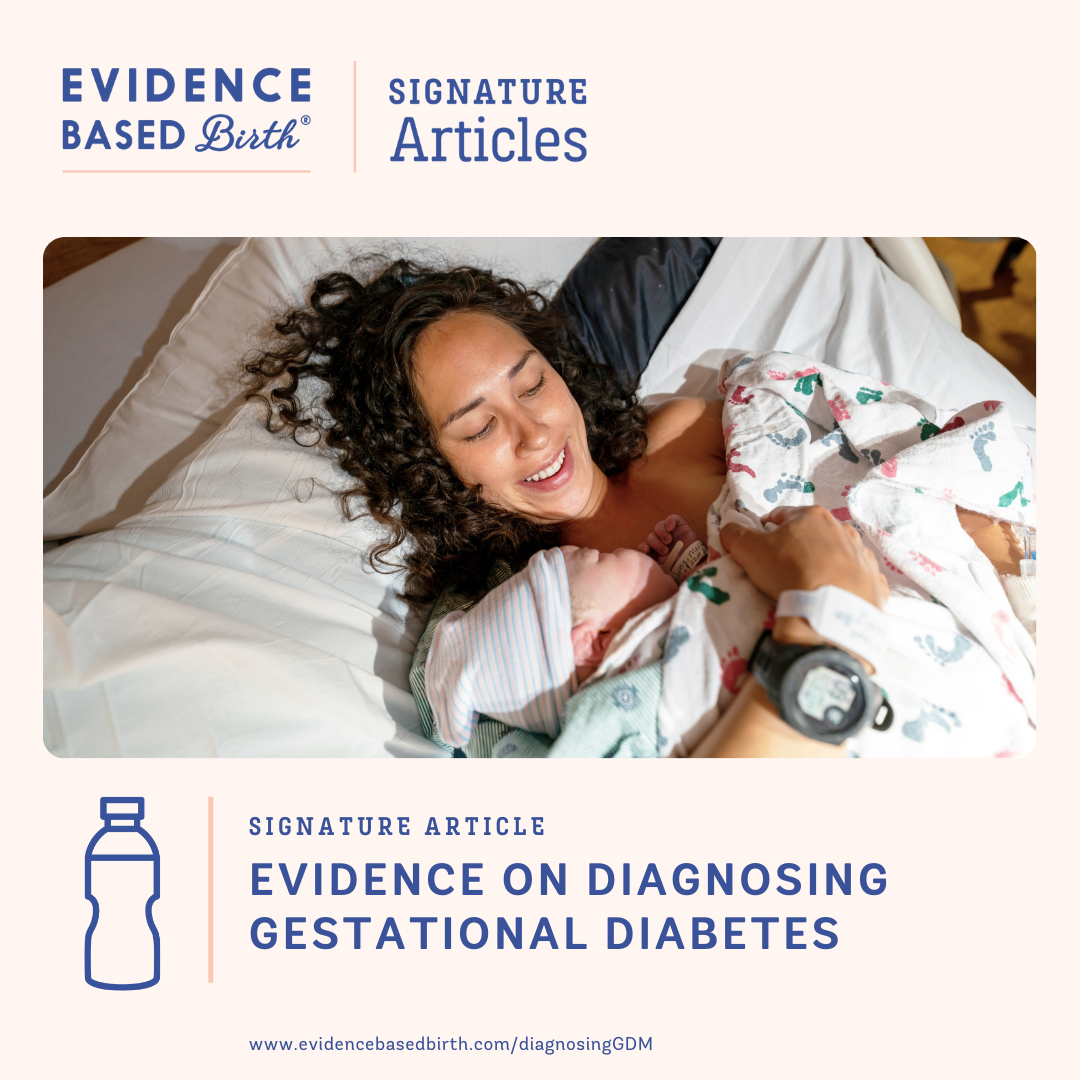View Transcript
Episode Description
Gestational diabetes (GDM) is one of the most common health issues during pregnancy, and diagnosing it is more complicated than you might think. In this episode, Dr. Dekker is joined by EBB Research Team member Dr. Morgan Richardson Cayama to cover the newly updated evidence on how GDM is diagnosed. They walk through the physiology behind GDM, current testing methods, and why there’s still international disagreement about how to screen. Together, they examine the results of large randomized trials comparing the one-step and two-step screening methods, the research on early screening with hemoglobin A1C, and the evidence on alternatives to the Glucola drink, including candy and home blood sugar monitoring. They also review the risks of skipping screening entirely, and how weight bias and other systemic factors can impact diagnosis and care. (02:28) What is Gestational Diabetes and Why Is It So Common? (06:30) Risk Factors, Size Bias, and the Role of Race and Ethnicity (10:40) Why We Screen and the Origins of the Controversy (13:17) Comparing the One-Step and Two-Step Methods (19:55) What New Research Says About Health Outcomes (23:45) Should We Screen for GDM Earlier in Pregnancy? (28:11) Can Hemoglobin A1C Replace the Glucola Drink? (32:44) Alternatives: Candy, Food, and Home Monitoring (40:04) What International Guidelines Recommend (43:07) Declining GDM Testing: What the Evidence Shows (47:47) Is Sperm Linked to Gestational Diabetes Risk? (51:29) Takeaways and the Future of GDM Diagnosis Resources
- Download the free two-page handout in English or Spanish: ebbirth.com/370
- Explore Real Food for Gestational Diabetes by Lily Nichols: realfoodforgd.com
- For a full list of resources, visit: ebbirth.com/inducinggdm
